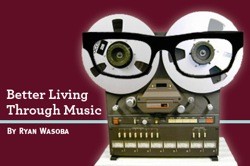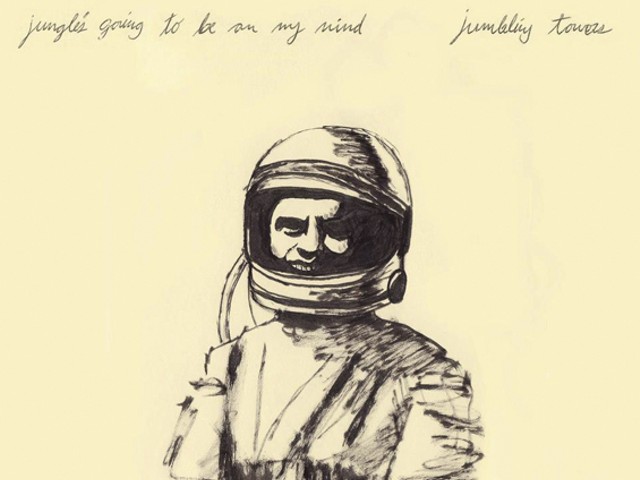Art and life co-habitate, informing, imitating, and enriching each other constantly. Each week in Better Living Through Music, RFT Music writer Ryan Wasoba explores this symbiotic relationship.
Last night while disassembling a crude table to repurpose its boards for a drum riser-slash-sandbox (long story), I had a quote stuck in my head as if it were a song. In 2010, I scored an interview with Broken Social Scene drummer Justin Peroff in anticipation of the band's set at the first LouFest. When I asked him to compare two different record producers, he likened all music recordists to magicians because "They're bending and molding something that isn't tangible." I think about this concept often, and it usually throws me into a Morgan Freeman-caliber wormhole.
So much has been discussed about music formats in the physical and digital realms that we sometimes forget that music is sound and sound is an effect of air moving. All the variables, from the specific guitar strings used to the specific headphones plugged into an iPod, are essentially effecting air. We like the music we like because the musicians move air in a way we find pleasurable. This is pretty insane to consider when you're listening to the new My Bloody Valentine record that, if it's anything like Loveless, I will hear fourteen years after release.
For many people, there is a reluctance to think of music in scientific terms. The logic employed is the same used by religious folks who fear demystification of God. But take Stephen Hawkings, who felt that breaking down the concepts of time and space brought him closer to God. Similarly, I feel that learning about the core principles of music and sound gives another dimension to its understanding and appreciation. I'm just like Stephen Hawkings, except I have less intelligence and money and better motor skills.
Naturally, I am not suggesting that revisiting seventh-grade textbooks will make you like Kraftwerk if you've never liked Kraftwerk before, or make you realize that The Rolling Stones are not all that great. But viewing the scientific practicalities of music can answer some lingering questions, such as:
Q. Why are so many bands much better live than on recording?
A. Because the air being moved when a band plays live is actually happening in front of you, while the air being moved when you listen to a recording is filtered through microphones, a recording system, and your own listening device before it hits your ears.
Q. How do noise-cancelling headphones work?
A. The headphones have one or two microphones on them that record the sound around the listener and send opposing sound waves through the headphones to neutralize them and cancel them out. Q. Why does my house rattle when somebody drives by listening to loud rap music?
A. Because the low frequency bass sound waves common to rap music can take upwards of forty feet to complete a single wave, thus needing to escape the vehicle and enter your house to finish one natural cycle.
Can knowing these specific things make you appreciate music more? Probably not, but this information can increase empathy and tact when it comes to the inevitable interhuman relationships that come with music. For example, maybe you won't blast your car stereo in residential areas if you are aware of the size of your sonic footprint. Or maybe you'll be more easygoing on your buddy's band who rules live but that demo is pretty weak.
If you love music, you love sound and air. And if it weren't for obsessive science geeks who use their powers for the good of mankind, we would have far fewer opportunities to love music.
Q. What makes your favorite song so great?
A. The answer, my friend, is blowing in the wind.






